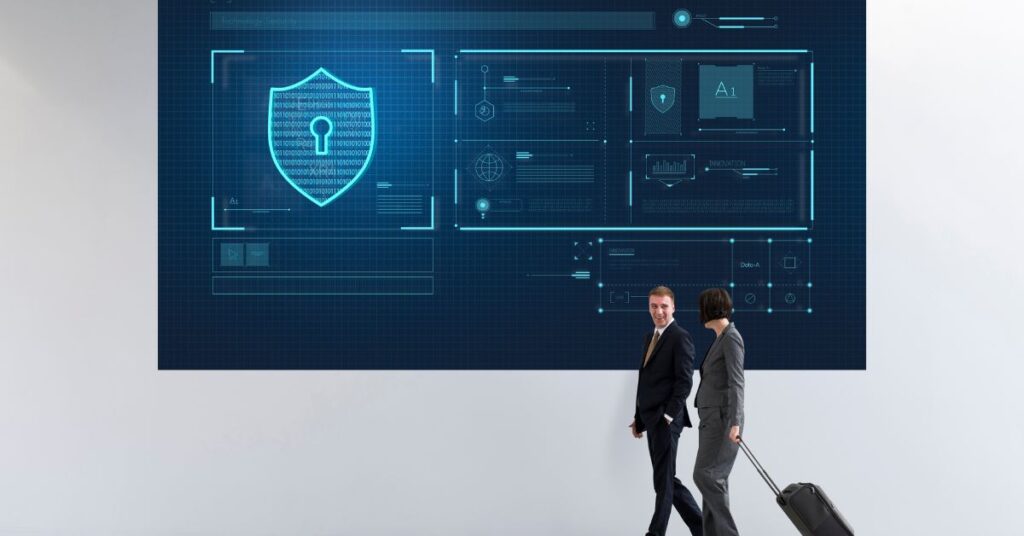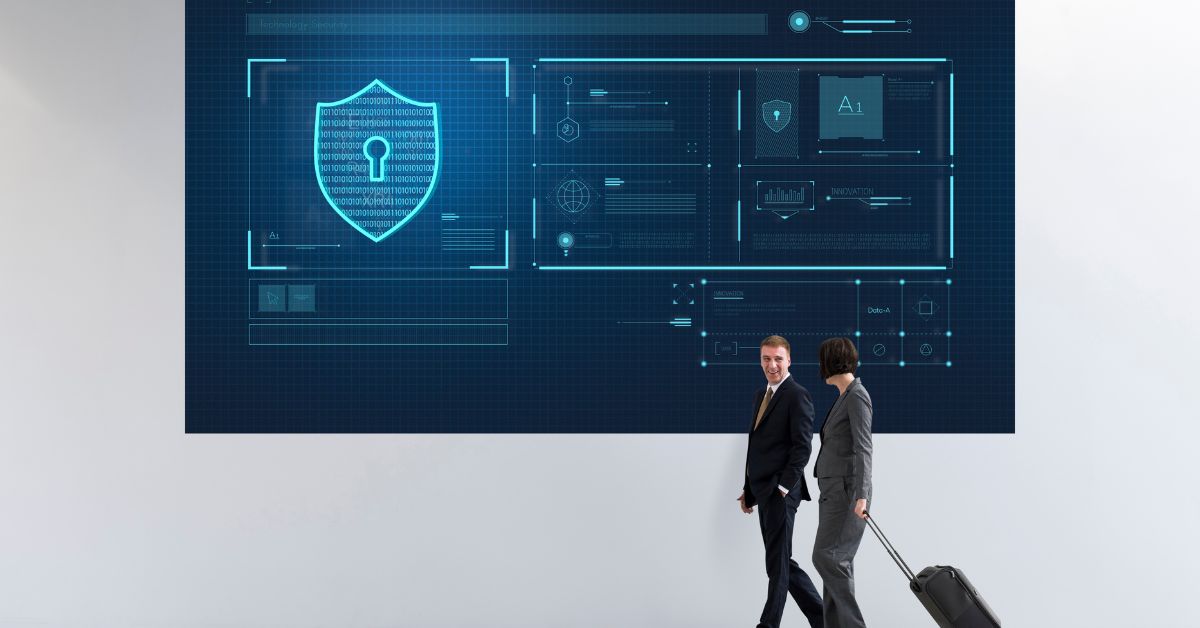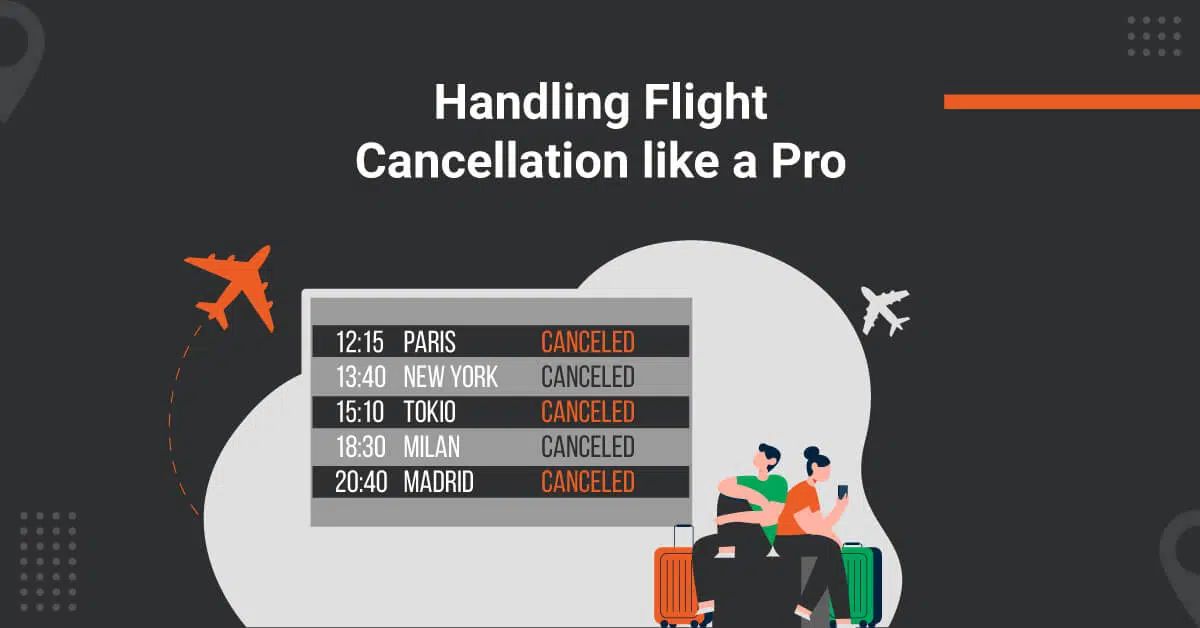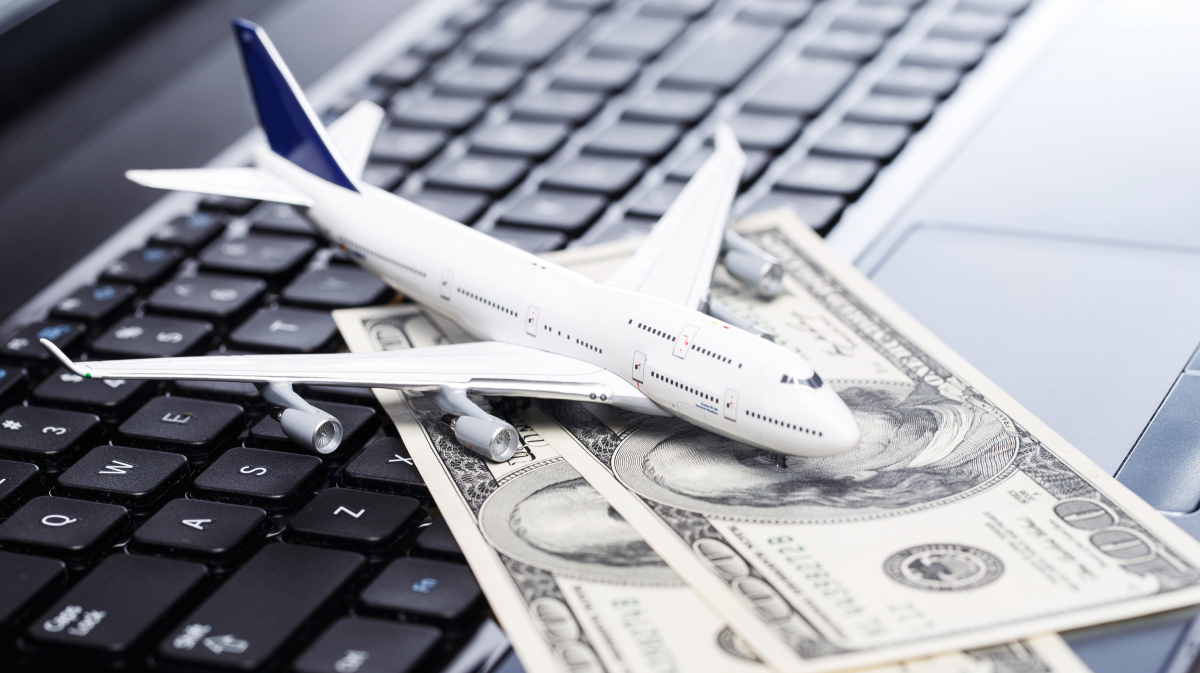
As global travel becomes more common, so does the threat of cybercrime targeting business travelers. Did you know that by 2025, cybercrime will cost the world $10.5 trillion annually?
Think about it! When your employees connect to public Wi-Fi in airports, hotels, or cafes, how secure are they? Are they using robust security protocols or unknowingly opening doors to hackers? Are they aware of the right cyber security travel tips?
Cyber attacks during business trips can have serious consequences. They can lead to compromised company data, financial losses, and even reputational damage. Your organization cannot afford to ignore this risk.
Protecting your employees from cyber threats while they travel is not just an IT concern; it’s a critical business strategy. So, how can you ensure their safety while keeping operations seamless? Read ahead.
Why Should You Protect Your Business Travelers?
Business travelers are prime targets for cybercriminals. While traveling, employees often rely on public networks to stay productive. However, these conveniences come with risks. Hackers exploit unsecured networks to steal sensitive information like login credentials, corporate emails, and financial data.
This can mean losses, legal liabilities, and damaged client relationships for your company. According to IBM, the average cost of a data breach in 2024 reached $4.88 million globally. Beyond monetary losses, a data breach can erode customer trust.
Moreover, cyber risks are not limited to the digital realm. Physical security breaches—like stolen devices—can also compromise sensitive data. Therefore, using cyber security tips for travelers is no longer optional. It’s a key component of a forward-thinking risk management strategy.
Consequences of Neglecting Cybersecurity for Travelers
You may compromise data security if you do not provide your employees with cyber security travel tips. Failing to protect business travelers from cyber threats can have severe repercussions:
- Financial Losses : Hackers can siphon funds or hold sensitive data for ransom.
- Data Breaches : Compromised data can lead to regulatory fines and lawsuits.
- Reputation Damage : Losing client trust can impact future business opportunities.
- Operational Disruptions : A cyber attack can halt operations, affecting deadlines and deliverables.
8 Ways to Protect Your Travelers from Cyber Attacks
1. Employee Training on Cyber Hygiene
Education is your first line of defense against cyber threats. Regular training will equip them to protect themselves and company data while traveling. They should be able to recognize phishing attempts. Further, they must avoid suspicious links and understand the risks of unsecured networks.
Another cyber security tip for travelers is role-playing scenarios to respond to threats. Educating employees on the importance of cybersecurity empowers them to make safer decisions while on the go. You must also create a corporate travel security policy to ensure traveler safety.
2. Implement VPNs
One of the top cyber security travel tips is using a VPN. These are critical tools for protecting internet connections over public Wi-Fi. Ensure all employees install a company-approved VPN on their devices before heading out.
A VPN encrypts internet traffic, making it difficult for hackers to intercept sensitive information. Encourage your employees to start their VPNs every time they connect to the internet, whether they are using it at the airport or a hotel.
Give step-by-step instructions on effectively using VPNs. Then, if required, troubleshoot any possible connectivity problems beforehand.
3. Use Multi-Factor Authentication (MFA)
Among the most critical cyber security travel tips is using MFA. Multi-factor Authentication allows you to authenticate ownership of your identity through multiple means, such as passwords, biometrics, and one-time codes sent to mobile devices.
MFA drastically reduces the likelihood of unauthorized access. Even in cases of password leakage, it does. Enforce MFA on all company accounts and applications, besides training employees in this regard.
Also, guide them through setting up MFA on multiple devices. This will ensure uniform security.
4. Provide Secure Devices
Provide business travelers with company-issued devices with the latest security configurations. The devices should include endpoint protection software, firewalls, and automatic updates against vulnerabilities.
Cyber security travel tips include limiting unauthorized apps that may host malware. If possible, lock the devices to specific accounts to reduce exposure. Employees should use only these devices for work-related tasks and avoid accessing sensitive data on personal devices.
5. Limit Access to Confidential Information
A “least privilege” practice grants staff access only to the information and systems needed to complete their job. Should a security breach happen, it limits the breach. Before the business travel, identify which data or applications the traveler needs.
Use access management tools to temporarily revoke or grant entitlements. Also, store sensitive information in encrypted formats. For data exchange, employees must use secure file-sharing platforms, not email attachments.
6. Allow Remote Wiping
Cyber security travel tips such as remote wiping allow the admin to erase key data from a lost or stolen device without physically accessing it. Remote wiping is one of the most important features when it comes to protecting sensitive data. Make sure to enable it on all company-issued devices. Further, instruct employees on how to report a lost device immediately.
Also, work with your IT department to test the remote wiping functionality from time to time so that it works when needed. This feature provides much-needed peace of mind for the company that the devices are secured.
7. Use Travel Management Software with Robust Security
Robust travel management software keeps your data safe with top security features. It uses trusted cloud systems to protect your information. It allows you to manage travel without worrying about hackers.
Gateway security separates systems like databases into secure zones to block unauthorized access. Anti-malware and spam protection stops harmful files and phishing emails. Encryption ensures your data is safe when stored or shared.
Lastly, access controls make sure only the right people can see sensitive information. These cyber security tips for travelers allow employees to focus on work while the software takes care of security.
8. Partner with a Travel Security Provider
Travel security providers offer specialized services to keep employees safe while traveling. They monitor real-time cyber threats, provide secure channels of communication, and provide immediate assistance if any security incidents occur.
Some provide pre-travel risk assessments and detailed security briefings. Partnerships with a good travel security company mean your employees can get expert advice and support.
Such a partnership will go a long way in adding a thick layer of protection to your cybersecurity strategy.
Secure Your Travelers, Secure Your Business
“Distrust and caution are the parents of security” – Benjamin Franklin
Cybersecurity for business travelers is not just a nice-to-have; it’s a must-have. Business travelers must be aware of the cyber security travel tips. With proper security, you’re safeguarding your employees, your data, and your company. The risks of neglecting cybersecurity are too significant to ignore.
When it comes to managing corporate travel, security is not just a feature—it’s a necessity. itiite stands out as the best travel management software with unmatched security features. Global compliance keeps you ahead of regulations. Further, role-based access and two-factor authentication ensure only authorized eyes see your data.
With AES 256-bit encryption, your sensitive information is always safe. Whether it is stored or in transit. And in the rare event of a disaster, our recovery plans ensure uninterrupted service. With itilite, you’re not just managing travel—you’re doing it securely and confidently.














 and then
and then